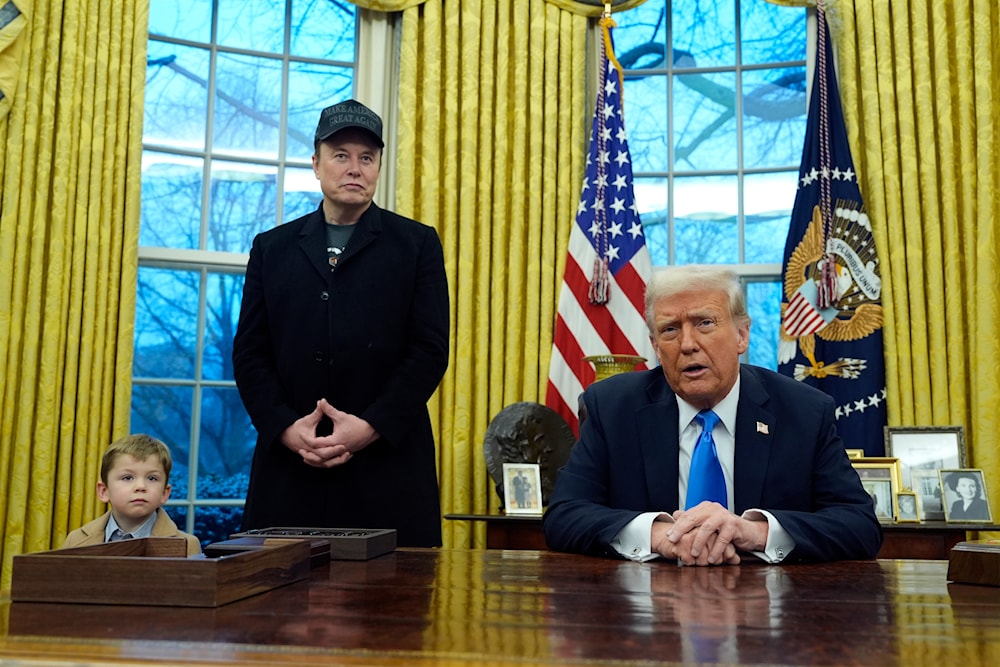Musk pays Trump $10 million lawsuit settlement over Jan 6 Twitter ban
The lawsuit was originally filed in 2021 when the social media platform was owned by Jack Dorsey, but Trump ultimately went through with it now despite his closeness to Musk.
-

President Donald Trump speaks as he is joined by Elon Musk, and his son X Æ A-Xii, in the Oval Office at the White House, on February 11, 2025. (AP)
Elon Musk has agreed to pay US President Trump a 10 million dollar settlement for a lawsuit after X suspended Trump's account in the wake of the January 6 Capitol attack after Trump posted inflammatory tweets at the time.
The lawsuit was originally filed by Trump's legal team in 2021 against the company and its former CEO, Jack Dorsey, as the platform permanently suspended Trump's account "due to the risk of further incitement of violence," on January 8.
Trump was originally considering letting the lawsuit go, as Elon Musk, the current CEO, had spent $250 million to aid the current president in his presidential campaign, which led to his second term. Plus, Musk reactivated Trump's account in October 2022 after acquiring Twitter for a whopping $44 billion.
Trump and Musk's relationship
The tech billionaire and the current president have grown closer with Trump's presidential campaign, with Musk pledging to donate 45 million dollars a month to Trump's campaign back in July, with Musk endorsing Trump shortly after his first assassination attempt.
I fully endorse President Trump and hope for his rapid recovery pic.twitter.com/ZdxkF63EqF
— Elon Musk (@elonmusk) July 13, 2024
According to data from the Federal Election Commission, the CEOs of Tesla and SpaceX contributed at least $288 million to Trump's presidential campaign, making Musk the largest political donor of the 2024 election cycle.
Musk's significant contributions to Trump's campaigns elevated his standing with the President, who appointed him to lead the newly established Department of Government Efficiency (DOGE), tasked with streamlining government operations and reducing public spending.
DOGE has recently been the center of controversy after it gained access to the records of millions of federal workers, including those in sensitive security roles. US officials say this is part of the agency asserting its control over the government's personnel agency.
Previously, DOGE was sued minutes after Trump's inauguration, with the last alleging that the new agency violates transparency laws and argues that it violates a 1972 law requiring executive branch advisory committees to adhere to disclosure, hiring, and other regulatory practices.

 2 Min Read
2 Min Read









